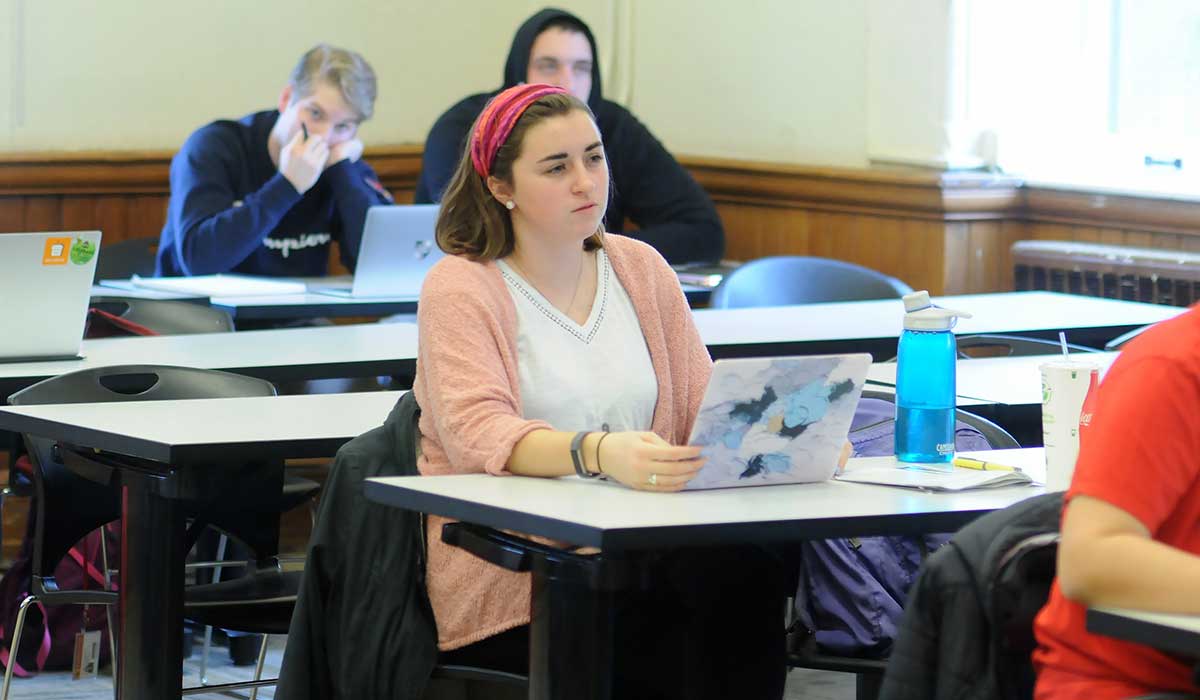Throughout the liberal arts curriculum, students pursue enduring questions that are foundational for an integrated understanding of reality and provide an intellectual framework to address, both theoretically and practically, the issues of our time:
The Human Condition:
- What does it mean to be human? What is our place in nature and in the cosmos?
- What is the relationship between our body and our soul, our physical and our spiritual identity?
- What does it mean to be an individual, and how do we live as members of society?
Knowledge and Wisdom:
- What does it mean to know? What and how much can we know?
- What are beauty, goodness, and truth?
- What is wisdom? How can we attain it?
Freedom and Justice:
- What does it mean to be free, and what is freedom for? How are freedom and responsibility related?
- What is justice? Can it be achieved in this world, and if so, how?
- What is the relationship between justice and mercy? How can we be just and merciful?
The Good Life:
- What makes a life good? How can we live a good life or best pursue it? What is opposed to it?
- What is happiness? How is it different from pleasure? What do family, friendship and love, work and leisure, faith and worship contribute?
- What is true friendship? What is true love?
God:
- What is the proper relation between faith and reason?
- What can we say about God, and what is our relationship to Him? What might our obligations be to Him?
- Why is there evil in the world? Why is there good in the world? How do we respond to good and evil?
Not all of the enduring questions can be addressed in all courses of the liberal arts curriculum, but in each course a subset of them will be integrated in ways appropriate to each discipline and area of study, so that gradually students gain insights into the complexities of reality from the perspectives of the various disciplines and academic areas of study and acquire an organic vision of the whole.
-
Enduring Questions
Learn More -
The Liberal Arts Courses
Learn More

